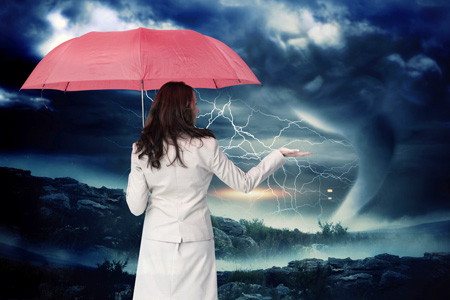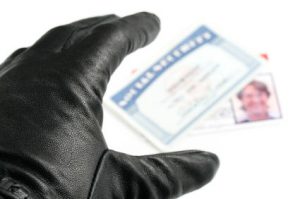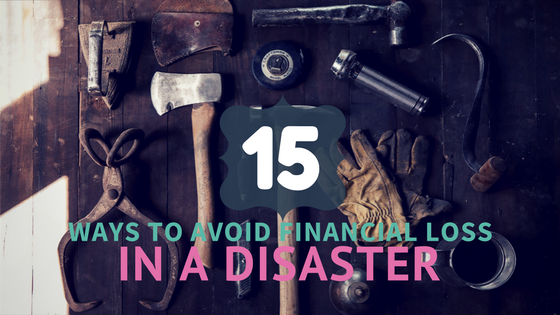The government’s Resolve to Be Ready campaign reminds Americans to always be prepared; a disaster can strike anytime, anywhere. The U.S. has seen a wide array of disasters in 2015, including severe winter storms, tornadoes, straight-line winds, typhoons, floods, landslides, mudslides, and fires that have affected residents from Maine to Alaska.
- Protect your home — The Federal Emergency Management Agency (FEMA) offers suggestions on how to protect homes against financial loss due to a natural catastrophe. Plus, FEMA funds 75% of the cost of programs like Rebuild Northwest Florida to fortify homes against hurricanes. See if there’s a similar program in your area. DisasterSafety.org also provides preventative strategies to prepare for different emergency situations.
- Identify potential financial loss — Go to Ready.gov: Natural Disasters to identify the type(s) of disasters most common to your area, and use this FEMA Hazus site to help estimate potential losses.
- Capture your valuables — Recovering as much as possible in the aftermath of a disaster is this FEMA Hazus site to help estimate potential losses.
 Capture your valuables — Recovering as much as possible in the aftermath of a disaster is critical to stabilizing your finances quickly. One of the best ways to support the value of yourclaims is to take a photographic inventory of all your belongings — the garage, tools, closets, electronic equipment, jewelry, collectibles, computers, etc. — and e-mail them to yourself, a family member, or store them in an online cloud storage service. You can also use the free Know Your Stuff online home inventory and app to record these items.
Capture your valuables — Recovering as much as possible in the aftermath of a disaster is critical to stabilizing your finances quickly. One of the best ways to support the value of yourclaims is to take a photographic inventory of all your belongings — the garage, tools, closets, electronic equipment, jewelry, collectibles, computers, etc. — and e-mail them to yourself, a family member, or store them in an online cloud storage service. You can also use the free Know Your Stuff online home inventory and app to record these items.- Talk to your insurance agent — More insurers today are adding hefty wind and hurricane deductibles to their policies. Does your policy cover flooding, wind damage, tree removal, and temporary living costs? Disaster insurance can be very costly, and few homeowner policies include coverage for natural disasters and/or floods. Reduce this expense by raising the deductible, or if it’s still too much, consider a flood insurance rider if you live in a hurricane- or tornado-prone area. Additional coverage will depend on risk tolerance, what you can afford, and where you live. The more equity in your home and possessions, the more you have to lose. Remember, unless an area is declared a disaster, FEMA assistance will not be available.
Caution: Renters, don’t forget to purchase renter’s insurance. It’s very inexpensive and will help replace personal items lost from any type of disaster.
- Access to immediate cash — An immediate concern after a natural catastrophe is access to cash for food, clothes, and living expenses while waiting for insurance or FEMA payments to arrive. You may not be able to use credit or debit cards in some locations, so having cash is essential. It’s also a good idea to keep some cash in your go bag that’s easily available for any emergency. See Ready.gov: Kit for other items to include.
- Set up auto bill pay — Even if you don’t plan to continue the automatic payments, setting them up is a good idea if you’re in a disaster-pronearea. It’s also an easier way to pay if you move to a temporary address, and can lessen the chance for identity theft by eliminating a paper trail.
- Monitor your credit score — Access to loans after a weather emergency may be critical, especially when FEMA hasn’t declared your loss as part of a disaster area. The better your score, the quicker you’ll receive the resources needed to restore your home or other property. Check your credit score, correct errors, and avoid “10 Ways to Trash Your Credit”.
 Prevent identity theft — To prevent identity theft after a disaster, stop or transfer your mail, monitor your credit activity, notify creditors, banks, etc., of your situation, and give them a temporary address. Be careful when giving out personal information to collect relief funds.
Prevent identity theft — To prevent identity theft after a disaster, stop or transfer your mail, monitor your credit activity, notify creditors, banks, etc., of your situation, and give them a temporary address. Be careful when giving out personal information to collect relief funds.- Access to information — FEMA provides a list of information necessary to apply for disaster assistance, so keep it handy. In addition to these items and the household inventory we’ve already covered, make sure you’ll have access to the following data (either through cloud storage, a flash drive, or by e-mailing them to yourself): financial and tax records; originals of wills, trusts, and powers of attorney; deeds and titles for your home, car, and other real property; appraisals of expensive jewelry and collectibles; all banking or investment data, including account numbers and passwords; certificates for stocks, bonds, and other investments; home improvement records.
- Move valuables — If you expect flooding, store valuables on higher levels if possible. Inexpensive shelving can keep belongings off the floor.
- Keep all your receipts — Depending on your policy and FEMA guidelines, you may be reimbursed for expenses both during and after a disaster. Find the right assistance and apply…immediately! — Go to DisasterAssistance.gov to apply online, or for information on types of assistance,how to check your status, and more. To apply via phone, contact FEMA at 800.621.3362. The sooner you apply after a disaster, the more likely you are to receive help.
Caution: Be sure to save your claim number. You’ll need it when checking on the status or receiving your payment.
- Dry out — Whether it’s your home or vehicle, have a professional water damage cleanup company on speed dial to schedule their services. Thiswill help you avoid mold and other problems that may not be covered by your insurance policy.
- Disaster scams — As you begin to repair or rebuild, don’t be a victim twice: first by the weather, then by a crooked contractor. Avoid the scams outlined in “Buyer Beware: Storm Chasers”. Beware of phishing scams (unsolicited calls or e-mails) from companies claiming to have lostyour personal information or organizations claiming to be relief groups in need of donations. The FBI offers additional disaster scam warnings.
- Help with services — When adversity strikes, see the IRS Disaster Assistance site for support available to help you file your tax return and report losses. Legal assistance is also available to low-income disaster victims. For emergency preparation tips for seniors, see Ready.gov: Seniors.
We hope these tips and resources will help you prepare for and protect your financial resources during any disaster.

